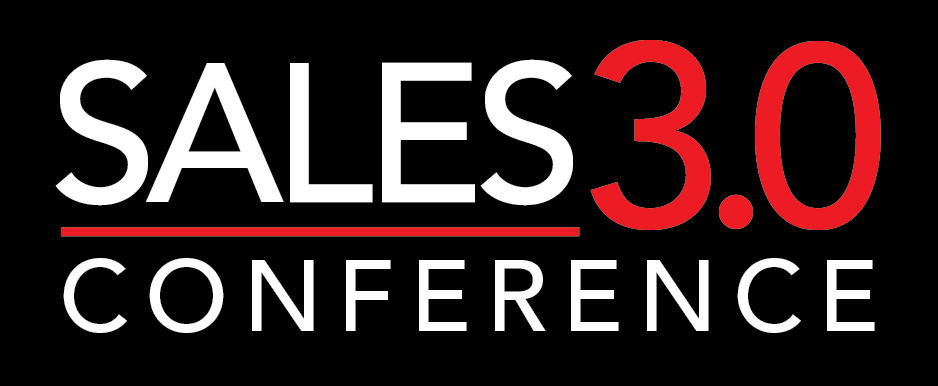There are myriad ways sales coaching can be difficult to do, but I seem to hear three common issues mentioned everywhere these days: having enough time to do it, knowing which skills to coach on, and overcoming human bias in giving feedback.
Using AI tools to support your sales coaching can go a long way toward resolving these challenges and provide you a new way to improve your coaching ability and the effectiveness of sales development initiatives.
It’s an understatement to say that AI’s capability as a tool is developing rapidly. The ground we’ve covered in recent years is stunning. By this time next year, the tech may have moved far beyond what I discuss in this article. But for Q4 2024, at least, here are three ways AI is changing sales coaching for the better.
Overcoming Sales Coaching Challenges with AI
Challenge #1: Having Enough Time
How do you find time to coach? Sales managers’ days are packed, and coaching often feels more like a “nice to have” than a “need to have.” Many coaches think, “As soon as I get these tricky deals closed or I finish out this quarter, I’ll support this seller in building this skill,” but there’s always looming quarterly pressure and another urgent target to hit.
AI never sleeps. The tech’s ability to analyze large volumes of data quickly and summarize results is breathtaking. Take the example of recorded sales conversations or video practice modules. AI can watch and analyze more “game film” in seconds than a manager can in weeks or even months. It’s also much better than humans at recognizing patterns and delivering consistent feedback when it spots them.
On calls, AI’s evaluation of talking/listening dynamics is extremely accurate, not only in a single instance, but in evaluating change patterns among hundreds and thousands of data points across team members over time.
Once it sees the pattern, AI’s feedback and recommendation are instantaneous and consistent. AI can even serve up training content and resources that would take a manager a good amount of time to gather.
An unfortunate reality for humans is we are limited to focusing on one thing at a time. But using AI as a coaching teammate provides infinitely greater analysis capacity and frees up the manager’s focus for coaching urgent deal situations and using the AI output effectively.
Challenge #2: Identifying Specific Skills
Speaking of deal coaching, let’s talk about the tension between “deal coaching” and “skills coaching.”
Deal coaching tends to be more concrete and specific. It tries to answer the question, “What’s the next best action to drive the deal forward?”
Skills coaching is more amorphous. It seeks to answer the question, “How do I help my sellers become better?” But identifying and articulating the specific moments or particular behaviors a seller should improve is often difficult.
In the great 1984 movie Amadeus, the emperor gives Mozart some coaching on his newest opera. “It had too many notes,” he says. To which Mozart replies, “Which ones would you have me remove?” Not the most helpful feedback.
In both deal and skill coaching, AI is great with the details. When progressing a deal, AI tools can quickly look through the CRM for patterns to recommend next best actions or activities and to point out important missing details.
This attention to detail translates also to skills coaching. Conventional wisdom says practice makes perfect. This statement is incomplete. It implies you simply need to repeat a behavior to get better. But repeating bad behaviors only reinforces bad habits. Instead of repetition, coaches need to foster iteration – consistent progress toward improvement and resolution of the problem.
But it’s difficult for a manager, with human limitations, to consistently observe and identify the particulars a seller needs to iterate on. Like Mozart’s emperor, a coach may tell a seller, “You need to get better at negotiation.” But what specific actions will make an improvement in this area?
AI is a helpful tool to spot exact development moments, no matter how many of them appear in a single call or practice module. It can also look for changes in those moments over time, across many different calls or iterations of practice.
This is a capability that’s impossible for a human manager. Before AI, the best a manager could say is, “It feels like this seller is getting better.” With AI, the coach doesn’t have to guess at improvement; it’s shown in the data.
Challenge #3: Overcoming Human Biases
The third coaching challenge is the host of biases that come into play when humans work together. We assume sales coaches have elevated wisdom, knowledge, and understanding. But in truth every manager is just as human as the people they coach. This means they miss things, forget things, and are – at times – less than clear, correct, or elegant in their feedback.
For example, a manager may hesitate to give critical feedback because they worry it will rattle a seller; they may forget to include something that, if shared, could make a difference; or they just don’t deliver their feedback well and the seller disregards or pushes back on what’s shared.
AI can be a helpful teammate for overcoming these biases and delivering feedback. AI “calls them how it sees them” without agenda, ulterior motive, or concern for the people or situation involved.
This objectivity allows the manager and seller to step away from an adversarial conversation (my view versus yours) and hang the AI’s analysis on the wall like a painting. Manager and seller can stand side-by-side looking at it together. The coaching conversation changes from, “You didn’t do this well” to, “This is what the AI shows us. How do we interpret this? Do we agree with it? Do you see what I see?”
Using AI can lead sellers to better, more objective self-evaluation. The manager/seller relationship becomes more collaborative and productive, resulting in teams getting measurably better over time.
Becoming a Better Sales Coach with AI
As a final note, there are a few ways managers and sellers can misunderstand AI and feel frustrated using it. We want to avoid these pitfalls. While AI is excellent at recognizing words and actions, it isn’t as good at hypothesizing the intent or motivation behind them. As a result, we can’t expect its feedback to reflect our motives perfectly. If we expect too much of this tool, we run the risk of becoming cynical and discounting potentially helpful feedback.
Also, we can’t expect AI to pat us on the back. AI reports what it sees – nothing more and nothing less. We shouldn’t shoot the messenger, but we should allow ourselves to be open to closely examining our actions so we can iterate toward improvement.
Sales coaching today is challenging but essential for ongoing sales development and improved performance. AI used effectively in sales coaching can help managers find much more time to coach, prioritize skill development in exactly the right places, and overcome biases inherent in delivering feedback.
All of this together can have a significant positive effect on manager/seller relationships and sales results. Good managers and AI can make a great team.

Spencer Wixom is president and CEO of The Brooks Group, one of the leading sales training and development companies empowering sales teams to generate breakthrough results.




